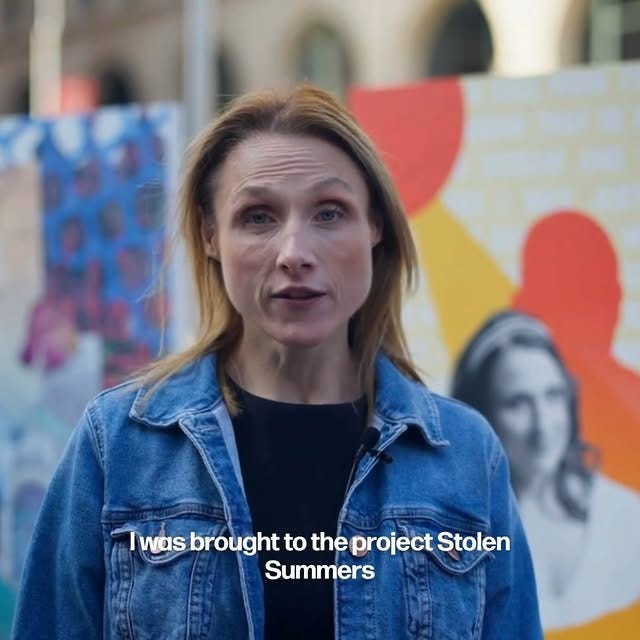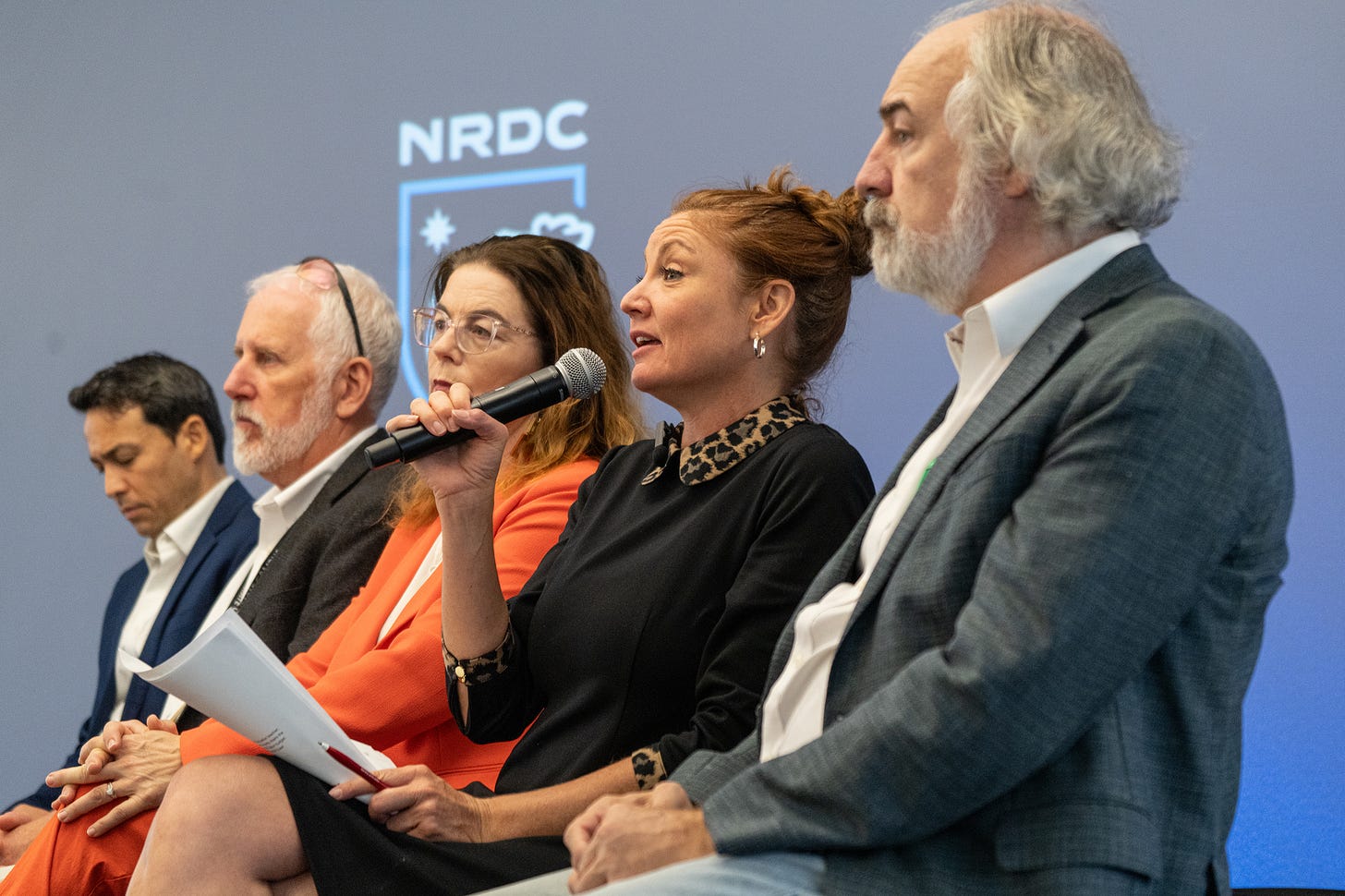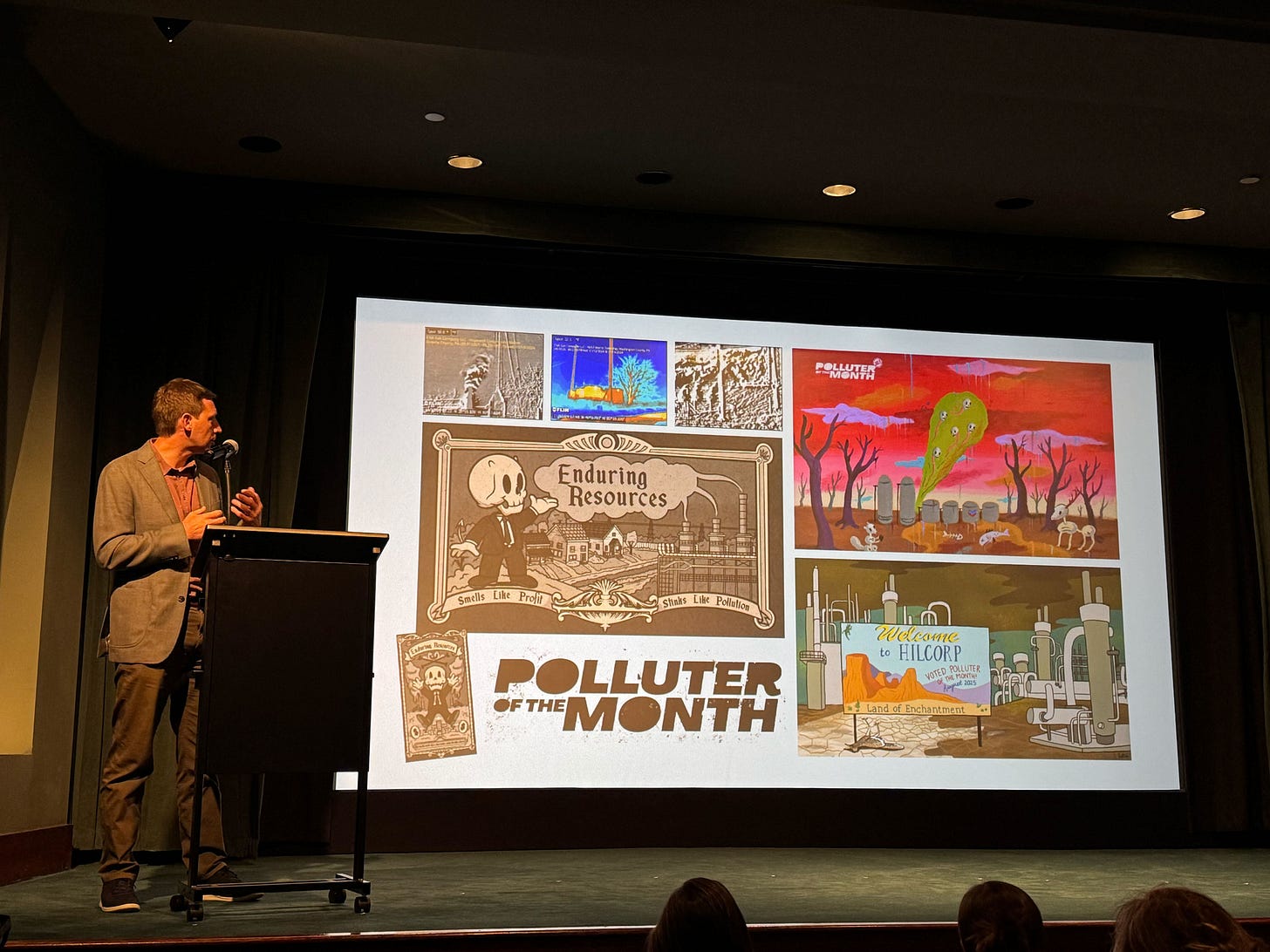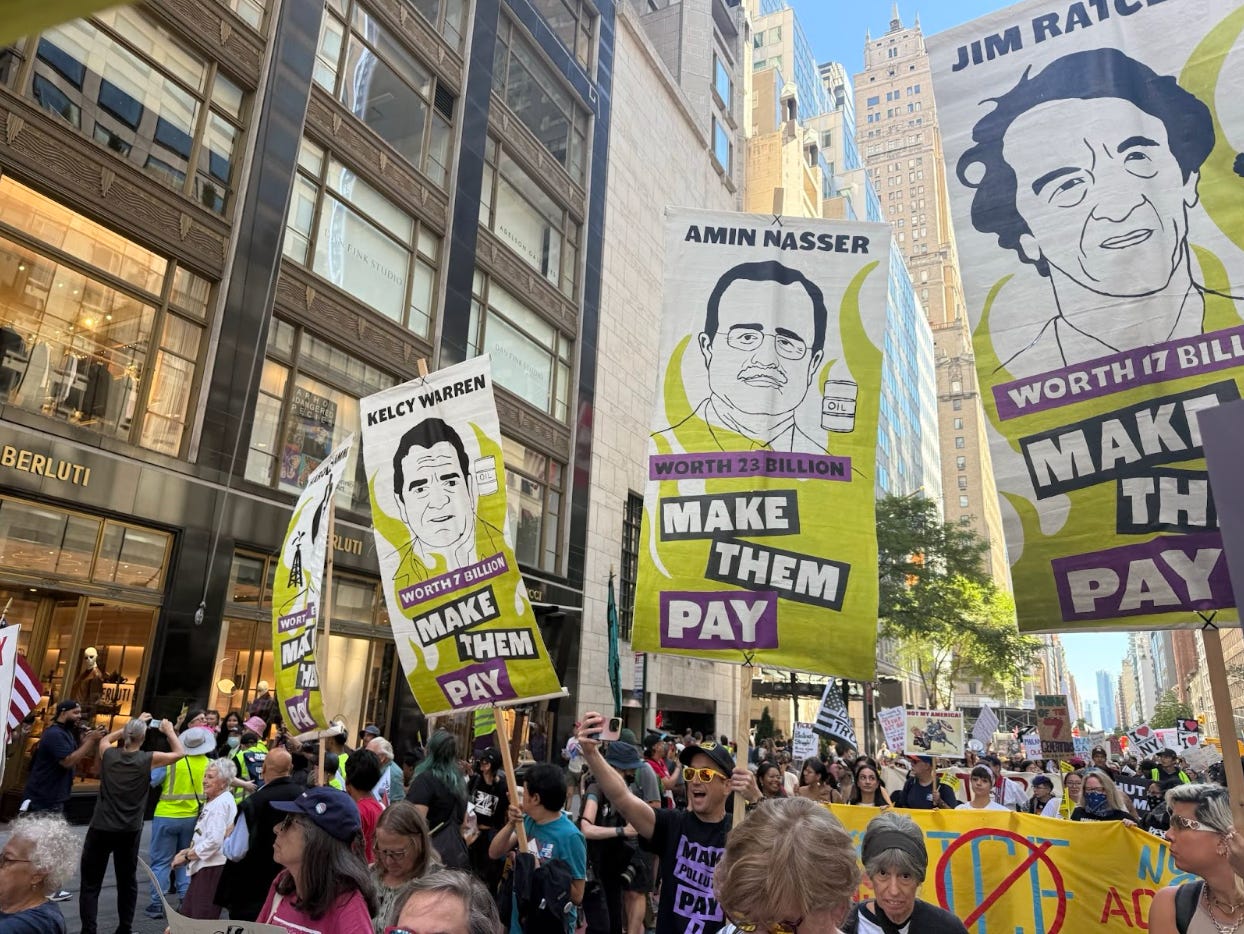Overheard at Climate Week
While you climate gossiped, we listened
From the outside, Climate Week can look like a wall of acronyms, closed-door panels, and LinkedIn declarations of progress. On the ground, it’s something stranger and more human. It’s policy wonks whispering frustrations between sessions, organizers trading burnout cures over cheap wine, CEOs quietly admitting that their own timelines are slipping. Instead of another roundup of lofty announcements, we’re dropping the quotes we overheard, scribbled down, or couldn’t stop thinking about.
Living on the frontlines of the climate crisis isn’t some abstract thing. It’s living rooms filled with water, skies turning orange, and parents making impossible calculations about heat and safety. At Climate Week, we got to witness Stolen Summers, an installation from Extreme Weather Survivors pairing 30 survivors of extreme weather disasters with 30 artists to create works honoring what fires, floods, hurricanes, and heatwaves have taken from us.
You cannot have healthy people in a sick place.
What hit me the most is when I put on my rain boots and waded through someone’s living room.
Every time I close my eyes I see flames. I wouldn’t wish this on my worst enemy.
I’m in a grocery store parking lot, sweating, desperately blasting the AC so my kids don’t overheat on a five-minute drive. It’s insane.
It’s gone. It’s all gone.
“I call it hazard hopping,” on the different climate disasters we work on, like floods or fires.
When I travel I realize how fresh our air is.
Climate policy is a fight over money, and spoiler alert, the fossil fuel industry has a very good accountant. At a Make Polluters Pay luncheon, lawmakers got real about what it’s actually like trying to push climate legislation on the ground — the coalitions that fall apart, the opposition that comes from unexpected places, and the exhausting math of trying to fund a livable future when fossil fuel subsidies are baked into the budget and polluters are in the pocket of politicians.
It’s always been a question of who’s going to pay, which inevitably means we’re all going to pay.
If people understand how much we subsidize the oil and gas industry, it goes from a left or right thing to a top and bottom thing.
When I presented the bill, 99% of people who came to support my bill were white. 99% of those who were opposing my bill were people of color.
We have to take back the House next year.
We know what the battlefield looks like. We’re going to have to fight like hell to preserve our climate enterprise.
Climate Week had no chill when it came to calling out performative politics, fair-weather allies, and the people showing up for the photo ops. But beneath the snark is something heavier: burnout. When the work feels like saving lives, watching people treat it like a networking opportunity or a branding exercise cuts deep.
Just because you’re a Democrat, it doesn’t mean you give a shit about the climate. We need to stop electing corporate Democrats.
They’re like goldfish. They don’t care three weeks later.
If you’re only here to talk about things and take photos, you shouldn’t be here.
I’m not saying all this to depress you, it’s quite depressing.
You’re never going to convince a crusty old climate denier to be a climate champion.
How do you tell the story of the end of the world without losing people in the first sentence? Turns out, humor, humility, and not letting perfect be the enemy of good help. The conversations around storytelling at Climate Week felt less like strategy sessions and more like therapy, which means people being genuine and admitting what’s working, what’s flopping, and why sometimes the best climate content is the stuff that doesn’t look like “climate content” at all. There’s an art to making people care without making them despair, and it’s harder than it looks.
Accept incremental wins.
The smartest brands treat creators as collaborators.
The magic is not dwelling too much on what the magic is.
Do not sacrifice your vision, but widen your aperture for the means of telling a story.
Don’t be afraid to lean into the absurdity and humor naturally existing in the story you’re telling.
Climate doesn’t exist in a vacuum. It’s tangled up with housing, healthcare, immigration, and every other system that’s barely holding together or already broken. The most honest conversations at Climate Week were about how you can’t organize your community around climate resilience when people are being evicted, or how climate policy collapses when the government stops functioning as anything more than a service provider for the wealthy.
Our states are the classrooms of innovation.
No one could have seen how swiftly and holistically they would dismantle climate policy.
We can’t have some duct tape Clean Air Act.
If you don’t have affordable housing, you can’t focus on anything else.
As we see our neighbors getting grabbed off the streets, as we see our politicians falling and folding, that is directly connected to the climate crisis.
When you start trading out public goods for private needs, you cannot have a robust government system.
When we talk about affordability, that’s the single largest albatross around people’s necks.
At the Make Billionaires Pay march on the Saturday of Climate Week, we had four massive, beautiful banners highlighting fossil fuel billionaires. They were heavy, striking, impossible to miss……. which is why it was absolutely baffling when we somehow lost one?? For twenty minutes, we ran around like chickens with our heads cut off, frantically searching for a banner the size of a small car. Climate organizing is very serious work.
Where is the fourth banner?
We found it, obviously. Here’s proof:






Ending fossil fuel forever.